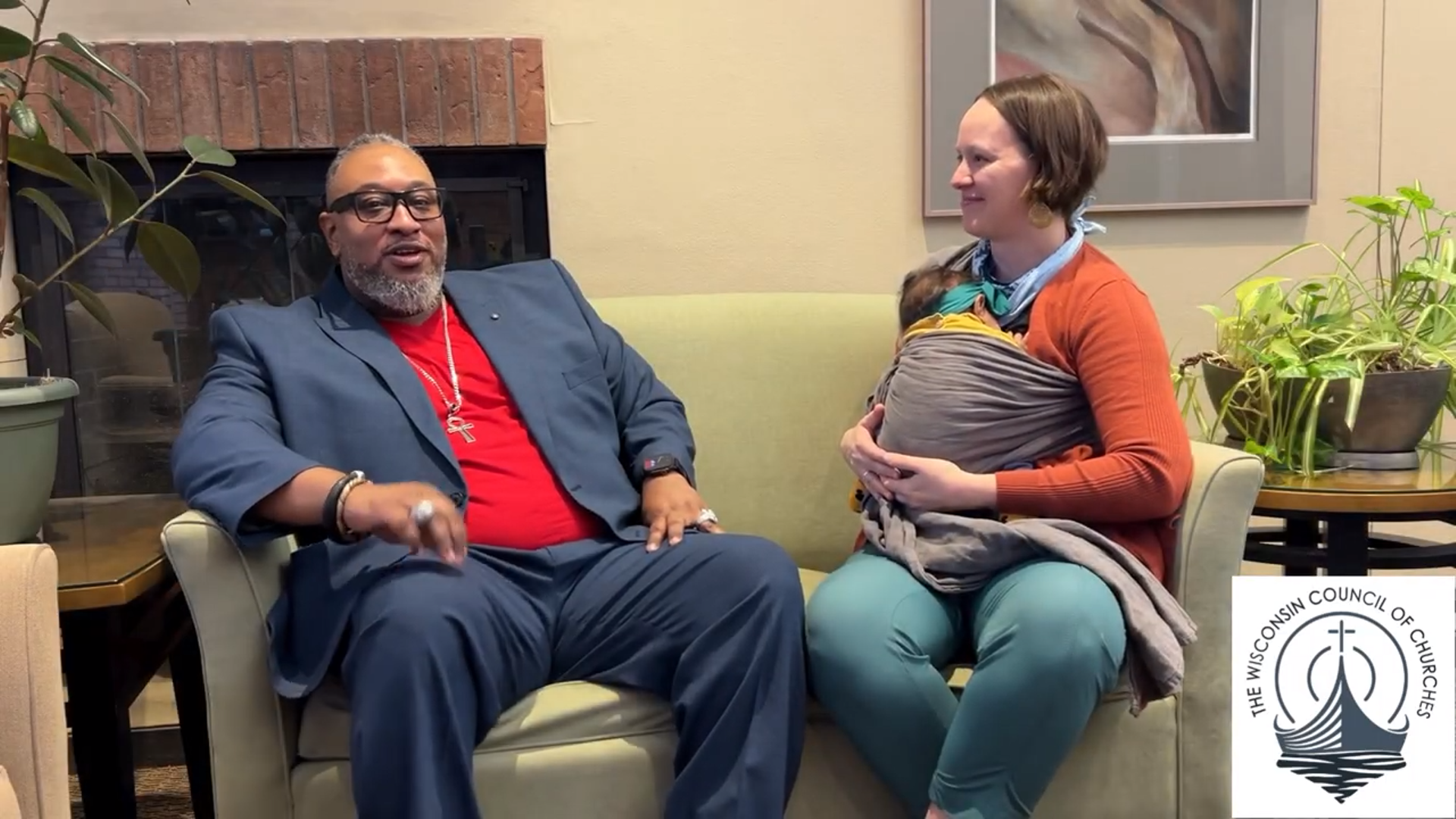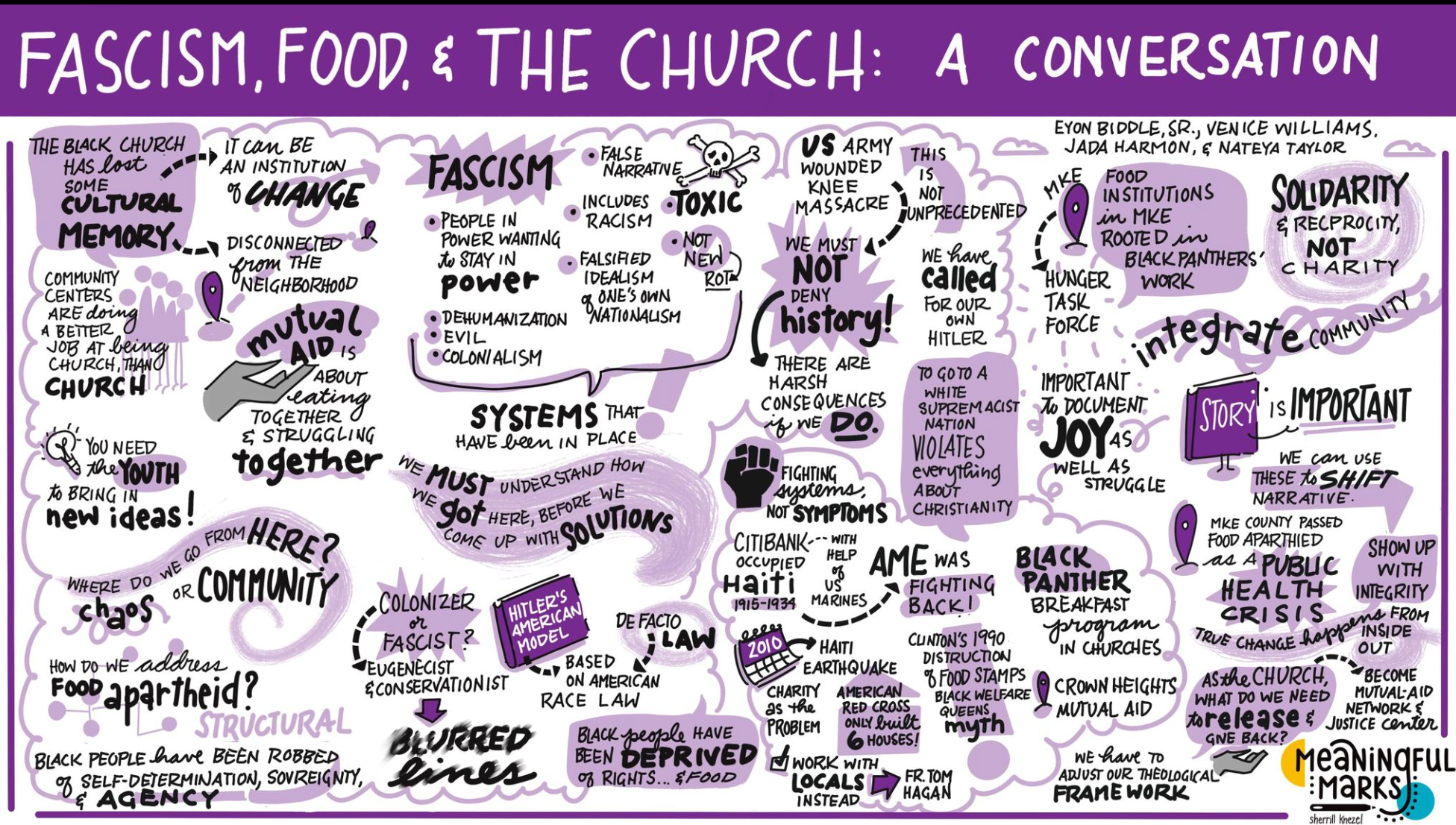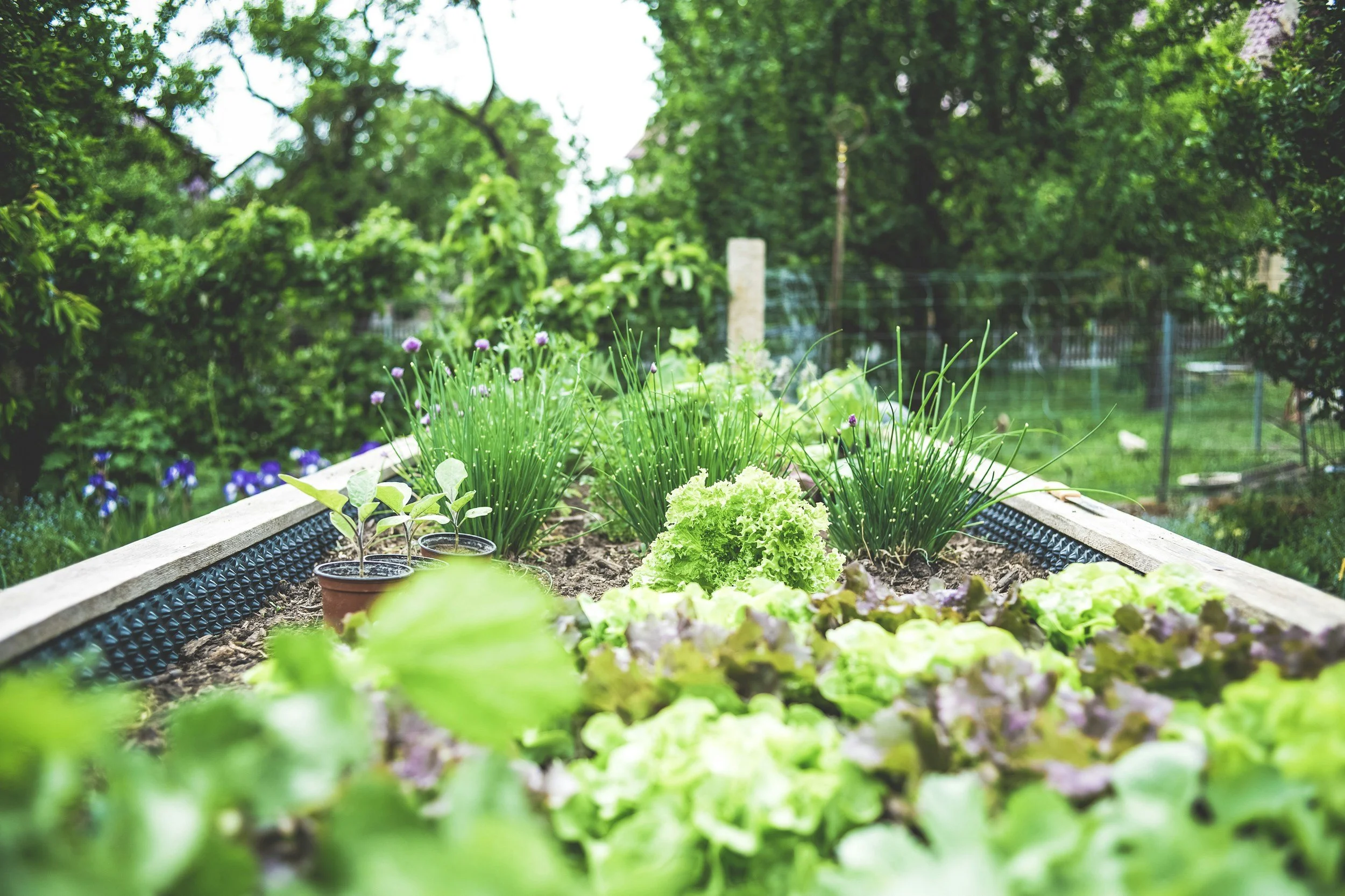
Faith Food Action Network
The Faith Food Action Network is a mutual aid project with the Wisconsin Council of Churches in conjunction with the Medical College of Wisconsin, in partnership with Milwaukee-area churches and the general community.
Remembering Our History
History of Mutual Aid
Black mutual aid societies played a crucial role in the lives of African Americans during slavery and the post-slavery period, spanning from before the Civil War to the Reconstruction era and into the Jim Crow era. These cooperative organizations provided essential services such as medical care, funeral and burial, childcare, groceries, public markets, life insurance, banking and financial support, and assistance purchasing land and livestock. In more recent times, the COVID-19 pandemic has sparked a resurgence of both online and grassroots mutual aid networks.
The Free African Society, founded in Philadelphia in 1787, was a non-denominational organization pioneering a mutual aid society for free African Americans in Philadelphia. It served their social and material needs. The Society aimed to address its community's physical, social, and spiritual needs by offering fellowship, financial support, and a place of worship.
The Free African Society's focus on self-governance and community support resulted in the creation of the first independent African American churches in the United States. This development significantly influenced the emergence of African American religious traditions, such as the African Methodist Episcopal Church.
During the WCC’s Annual Meeting in December 2025, one of the afternoon workshop options was a conversation about food, mutual aid, and the church. This was powerfully framed in the context of fascism and racism in the history of the United States, by Venice Williams, Jada Harmon, Nateya Taylor, and WCC staff member Eyon Biddle, Sr. The image below is Sherrill Knezel’s graphic record of the conversation. We are grateful to the presenters and to Sherrill for sharing their time and expertise.
Click on the image above for a closer look and for the alt text.
Where We Are
-

Faith Food Action Network: What We've Learned So Far
Recently, FFAN Project Director Mr. Eyon Biddle Sr and Director of Ecumenical Innovation & Justice Initiatives Rev. Breanna Illéné sat down for a conversation about the Faith Food Action Network (FFAN). The FFAN is a mutual aid project with the Wisconsin Council of Churches in conjunction with the Medical College of Wisconsin, in partnership with Milwaukee-area churches and the general community.
-

Jesus’ Call to Feed People as Institutions Break Down
Will people receive SNAP benefits? Will the federal government reopen? Will people’s healthcare costs increase or remain the same? These are the questions that have been swirling for the past few weeks. While politicians play games and headlines scream, there are very real people on the ground who are unable to afford the basic necessities of daily life.
-

Mutual Aid is Jesus' Work
It is time for you and me to be more like Jesus and to do Jesus' work.
He made it clear, and I will too: to love God means to love yourself abundantly and to love your neighbor with that same abundance. Loving God involves loving yourself and caring for His people. The quote "Love thy neighbour as thyself" calls to treat others with the same love, care, and consideration that one naturally extends to oneself. It highlights the importance of empathy, compassion, and treating all individuals with dignity.
-

WCC to Facilitate Faith Food Action Network in Milwaukee
The Wisconsin Council of Churches (WCC) is pleased to announce that our proposal, Faith Food Action Network: Improving Mental Health Through Mutual Aid, has been funded for the next twenty-four months through an Advancing a Healthier Wisconsin Endowment Community-Led Momentum Grant. The initiative will establish mutual aid groups focused on food equity in predominantly African-American churches in southeast Wisconsin.
Our Partners
The Wisconsin Council of Churches partnered with the Medical College of Wisconsin in Milwaukee to secure a 24-month community-led momentum grant from the Advancing a Healthier Wisconsin Endowment Fund. This grant covers staff time for the project. Additionally, the Wisconsin Council of Churches continues to raise extra funds to provide seed investments to each Faith Food Action Team while leveraging additional resources.
Who are the congregations involved?
The churches currently committed:
St. Mark A.M.E.
Ascension Fellowship
Albright Trinity U.M.C.
Each congregation established its own Faith Food Action Team, consisting of church and community members. We aim to invite those who benefit from the project to take on leadership roles and participate actively. This approach emphasizes mutual aid, fostering solidarity, community, and democracy rather than providing charity or maintaining the status quo. It’s not about giving to or serving people; mutual aid recognizes that we all need one another and must support each other, especially in our current political climate.
Additionally, this project helps churches develop deeper personal relationships with community members, brings people together, and encourages their involvement in the church. This includes friends, family, social acquaintances, and others.
What Could Be
Mutual Aid Project Ideas:
Starting a community garden on a vacant lot or a church lawn
A farmer's market where people can exchange produce
A mobile food pantry that brings supplies into the neighborhood and encourages donations from the neighborhood
Food delivery systems for the sick and shut-in
Community dinners and roundtable discussions
Healthy nutrition coaching and discussions
Creating a community fridge or little free pantry
Setting up a Facebook group in which people can request food support or offer it
A phone network that makes sure elderly neighbors are getting adequate nutrition
Bringing together leaders of local feeding programs to coordinate and extend their work
Even a community food pantry or meal, based on the expectation that everyone participates and gives back, can count as mutual aid.
Get Involved!
We believe in this work and need your help and support to facilitate this. We aim to endow each participating church with an initial seed investment of $1000 to help them execute their mutual aid project. Consider donating to the Wisconsin Council of Churches to help with this effort.
If you have any personal or professional connections to help augment resources (connections to food distribution organizations, equipment, expertise), please contact Eyon Biddle, Sr.
Food connects us, feeds us, sustains us. As we attempt to build community, address food insecurity and mental health, and improve connectedness in the Milwaukee area, we are reminded of a simple fact elucidated again by Cesar Chavez, “If you really want to make a friend, go to someone's house and eat with him...the people who give you their food give you their heart.”






